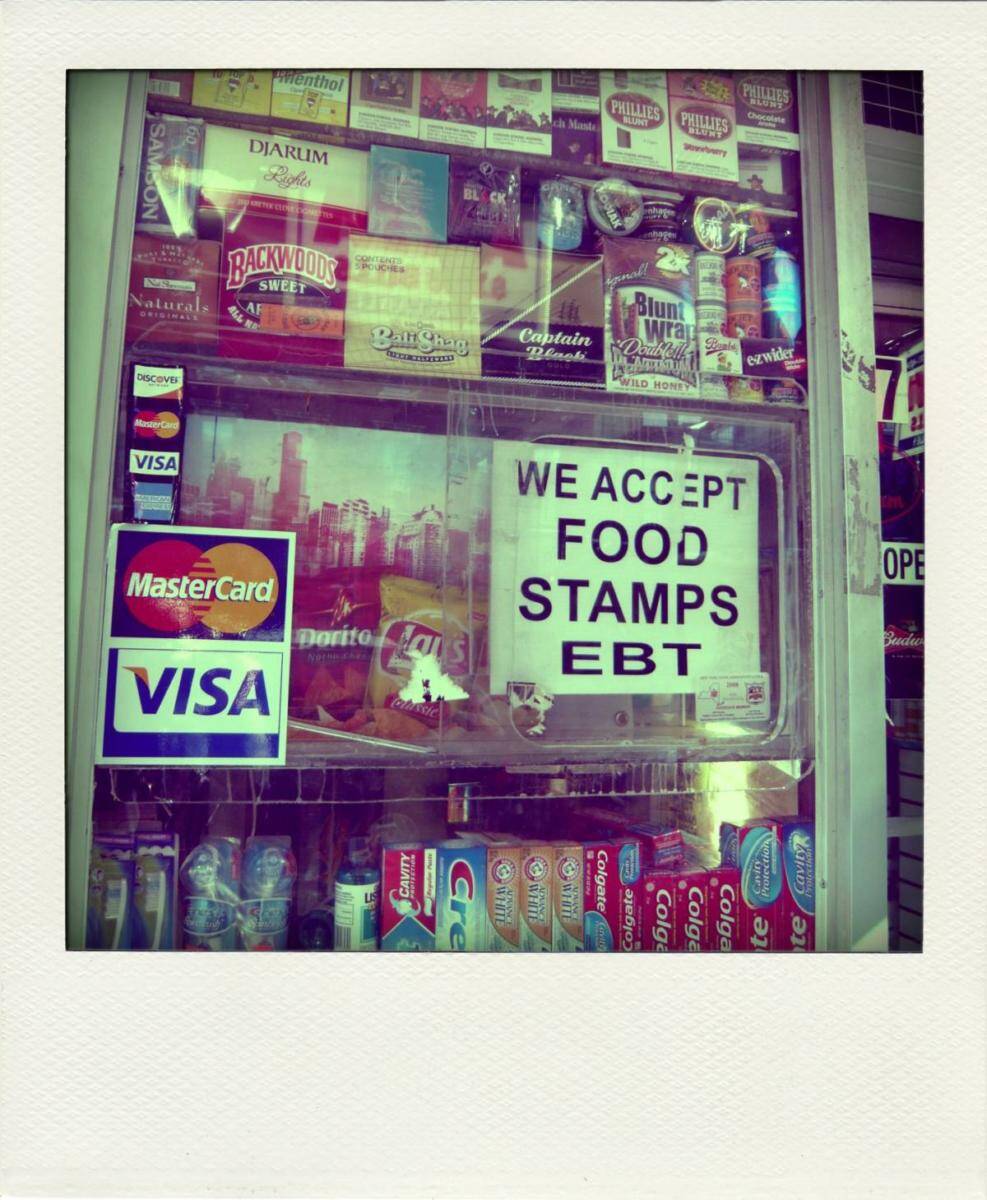 “When we opened our windows, they had fans. When we got fans, they had air conditioners. She just keeps popping out kids from different daddies.”
“When we opened our windows, they had fans. When we got fans, they had air conditioners. She just keeps popping out kids from different daddies.”
Darrin’s parents had been trying hard to make a living for themselves and take care of their children. His mom – who said the above somewhere around 1988 – was talking about a person who lived a block up from them, and who was on welfare.
I grew up with a different view of “welfare queens” than people in other areas of the country. Most of the stereotypes were there – but it surprised me to find out that most people also assumed that a so-called “welfare queen” was black. Not so when I was growing up – there simply weren’t that many black people around my hometown. Instead, we thought of the hillbillies living in shacks with satellite TV dishes or nice cars. That racialized aspect should be a warning sign in itself that the image of a welfare cheat isn’t about a real person.
I began suspecting that our prejudices were just that a few years after hearing Darrin’s mom. I knew people who spent their money on a few nice things and others who had a lot of okay things but nothing “nice”. I began to suspect that this had a lot to do with our mental image. It’s all because of the choices they made. I knew people who had made both types of choices – and understood their reasons for each.
I started to be a lot less judgmental about the places I drove by, realizing that getting joy from one big purchase might be worth it for a family with few options. I really started to clue in to the idea that our judgments of people on welfare aren’t based on reality, but on our perceptions of their choices.
And then I found myself on welfare.
I made some stupid choices and some stupid mistakes. But I also did not have the resources, skills, or credentials to get a decent paying job. I did not know how to write a skills-based resume (and didn’t know such a thing existed). I had not graduated from college, and though I had a lot of skills, I had few connections and fewer opportunities. And I had a new family to support.
If you have never been on welfare, it is not fun. The forms and overworked jaded people behind the desks can be mind numbing. The hours spent waiting to sign a form or be grilled about income take away from the opportunity to look for a job – or work at one that you might have. Even WIC – a wonderful idea for a program – has mandatory classes that you have to attend, again problematic if you’re trying to work.
And in case you don’t know – most employers (especially those in the service industry and blue collar work) aren’t fond of one taking time off to sit in a waiting room.
I ended up getting off welfare by joining the Army. Even with the help of welfare, we were not making ends meet with the food-service job I had. Yet that had its own ramifications – I was gone for training for many months, and then after I finally completed training, I had an unaccompanied tour in Korea for a year. These things certainly contributed to the problems in both my relationship with my ex-wife, precipitating the problems that my oldest son later had.
We expect the working poor to simply work more, and ignore the violence that does to our other values of family and childrearing. How much support can someone give to a family if they’re working two jobs to make ends meet? How much can a parent participate in their child’s development, homework, or extracurricular activities if they’re still at their second job? What damage does it do to extended families if we simply demand that workers move to a distant city to find jobs?
We had a long period where there were plenty of jobs for the taking. But that is not now. Currently, the official unemployment rate is over 8% (and unofficial estimates of the real unemployment rate top 13%). I tell my story again here to remind you that most people getting government assistance are like I were – stuck, desperately trying to make it, and finding that they can’t.
It’s still hard for me sometimes. New jobs have new financial requirements. I still don’t always have the credentials to prove what I can do. But I know, from personal experience, that I’ve got it pretty good – and the odds are that if you’re reading this, you do too.
It may not feel like it, and I recognize that each and every one of you reading this has your own difficult challenges in these times. Yet if you are still “making it”, remember that those who are not making it, that those who are needing help now are real, largely decent people too.
And someday, no matter what choices you make, you might find yourself one of them.

Thanks for sharing this. Having worked with welfare recipients (in a completely different capacity than a social worker — I was teaching them how to use their new EBT cards in California), I saw how desperate so many of them are, and how ashamed they were to be on welfare in the first place; and I saw how many had simply given up hope that they could ever get out of the system and start making it on their own.
Granted there were some “welfare kings and queens” who were proud of that fact and laughed at the system, but they hardly represented the majority, or even a significant minority, of the people I met.